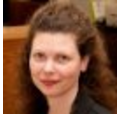The Soviet empire may be gone but the Kremlin still has media hegemony over 142m Russian citizens and an estimated 93m elsewhere in the former USSR for whom Russian is a first or second language (plus as many as 3m in Germany). A project by the European Endowment for Democracy, a Brussels foundation -- of which I was an author -- sought ways to tackle this challenge. We soon found differences between the situation today and the in cold war.
In the 20th century the job of western Russian language media such as the BBC World Service or Radio Free Europe was to break through the information iron curtain. The battle was for alternative points of view and against censorship. Today television is strictly controlled by the Kremlin, though there is access to other media online. Russian speakers in Ukraine, Moldova and the Baltics -- the groups of most immediate concern to US and European policymakers worried about Moscow stirring unrest -- have access to a plethora of Kremlin, local and western media, each offering strikingly contradictory versions of reality.
Take Estonia, where viewers who followed rival Russian and western stories about the downing of flight MH17 over Ukraine last year ended up disbelieving both sides. Something similar is happening in Kharkiv, a Ukrainian city near the border with Russia, where polls showed a high number of people cynical about all media, whatever the source.
Viewers are nevertheless entranced by Russian channels. The Kremlin blurs the lines between fact and fiction: "current affairs" shows are cinematic and sensational, with scare stories about Russian children crucified by Ukrainian militias or US conspiracies to ethnically cleanse east Ukraine.
The disinformation fits into a consistent narrative. News focuses on fighting in Ukraine, western plots against Russia and positive stories on Vladimir Putin. The president provides stability for a nation beset by enemies. This is reinforced by big-budget historical dramas that strengthen his policies: glorious second world war battles for Crimea, or tales of nefarious liberals collaborating with the motherland's enemies.
Kremlin media, however, ignore local news and social issues. EED experts recommended a news agency or news hub to focus on the details Moscow wants to avoid. They might not be able to convince audiences who downed MH17, but by focusing on local stories about hospitals, schools and courts they could prove more relevant. A content factory could also provide socially engaged documentary material: docu-soaps about schools or hospitals; reality shows exploring ethnic tensions. Local broadcasters need help, both financial and professional, to create such high-quality content. It is something the British especially, with their sophisticated TV industry, should take the lead on.
Ideally such programming would dovetail with development priorities . When the UK's Department for International Development backs judicial re form in Ukraine or Moldova it should also make TV dramas and documentaries about the court system. BBC Media Action (the charity arm of the BBC) has been working with the fledgling Ukrainian public broadcaster on short dramas about young people caught up in the war. The budget is minuscule but it is exactly the sort of project we need.
High-quality shows are not cheap. A channel such as a BBC Russia would cost more than 20m a year. This may seem like a lot -- but take into account a single Eurofighter jet costs 90m.
As Mr Putin knows, media and entertainment are as vital as doctors or soldiers. The west made a bad error in the 1990s, abandoning the development of media in the former Soviet Union to the free market: instead, media were captured by oligarchs or corrupt regimes. After the cold war it was considered part of the "peace dividend" to slash funding for the likes of Radio Free Europe. A much greater cost is being paid now.
Next Page 1 | 2 | 3 | 4 | 5 | 6 | 7 | 8 | 9 | 10 | 11 | 12 | 13 | 14 | 15 | 16 | 17 | 18
(Note: You can view every article as one long page if you sign up as an Advocate Member, or higher).





